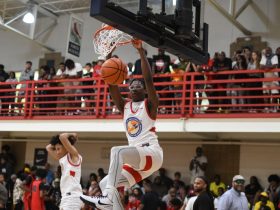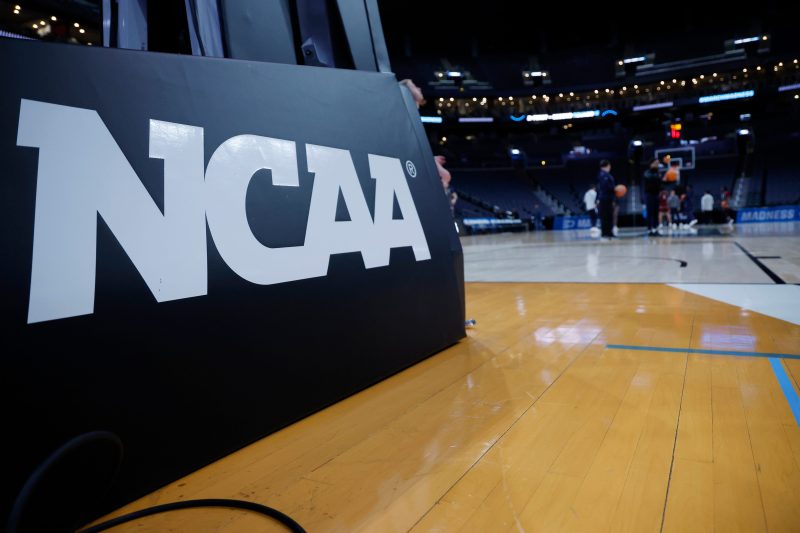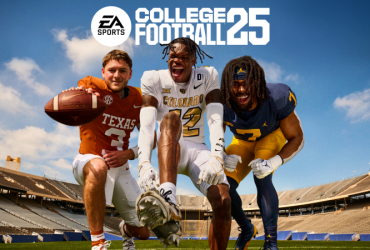A federal judge said Wednesday that she cannot approve the proposed settlement of three athlete-compensation antitrust cases against the NCAA and Power Five conferences in its current form because of roster limits that were set to go into effect as part of the agreement.
U.S. District Judge Claudia Wilken wrote that she was inclined to approve the rest of the deal over a variety of other objections. That means she is otherwise prepared to accept an arrangement under which $2.8 billion in damages would be paid to current and former athletes — and their lawyers — over 10 years, and Division I schools would be able to start paying athletes directly for use of their name, image and likeness (NIL), subject to a per-school cap that would increase over time and be based on a percentage of certain athletics revenues.
However, during a final-approval hearing on April 7, she strongly suggested a system of phased-in implementation of the proposed sport-by-sport roster limits, which were to take effect on July 1 alongside an end to the NCAA’s existing system of sport-by-sport scholarship limits. A number of lawyers and scores of athletes and parents — some in emotional and personal written pleas — had asked Wilken to consider such a solution. And she gave the principals a week to consider that modification, as well as several other smaller ones.
The principals submitted a revised version of the deal that did not include changes to the roster limits, and now the NCAA and its schools and conferences are left with a potentially chaotic situation.
That concern was echoed by an athletic director who spoke to USA TODAY Sports and requested anonymity to protect because of the sensitivity of the situation.
“It’s insanity,’ the person said. ‘She’s not supposed to be negotiating for the people who write letters.’
However, another athletic director also requesting anonymity due to the situation didn’t seem as concerned.
“It’s an easy fix,’ the person said. ‘Coaches wanted to grandfather all along. I’m just annoyed it means more days without this being settled and (having) rules to operationalize it set in place.’
Wilken wrote that within 14 days the parties “shall make their best efforts” to consult with a mediator “about potential modifications of the settlement agreement to address (her) concerns.” And she requested that three attorneys who represented clients objecting to the settlement because of the roster limits “consult remotely, together or separately” with the mediator and the lawyers for the principals.
In the meantime, she issued a case scheduling order that would begin to move the case toward a trial date that was left unspecified.
Steve Berman, the one of the lead attorneys for the athlete plaintiffs wrote in an email to USA TODAY Sports: “The good news is she overruled all the objections but one. As for the roster issue, armed with the leverage of this order, we are confident we can convince the NCAA and the conferences to fix the issue so that we satisfy Judge Wilken. If not, the Judge has re started the pre trial schedule in House and so be it if there is no fix.”
In a statement Wednesday night, the NCAA and the conferences said: “We are closely reviewing Judge Wilken’s order. Our focus continues to be on securing approval of this significant agreement, which aims to create more opportunities than ever before for student-athletes while fostering much-needed stability and fairness in college sports.”
Laura Reathaford, one of the three objectors’ lawyers referenced by Wilken, told USA TODAY Sports in a text message: “We are very happy with today’s order from Judge Wilken regarding the phasing-in of roster limits. The judge followed the law. We look forward to working with the parties on an amicable resolution to this problem.”
Under class-action antitrust law cited by Wilken, a settlement can be approved only if it “treats class members equitably relative to each other.”
She added that: “Because the settlement agreement is not fair and reasonable to the significant number of class members whose roster spots will be or have been taken away because of the immediate implementation of the settlement agreement, the Court cannot approve the settlement agreement in its current form.”
She wrote that one way of resolving this “could be to modify the settlement agreement to ensure that no (athletes) who have or had a roster spot will lose it as a result of the immediate implementation of the settlement agreement.”
Thousands of current walk-on athletes stand to lose their places on Division I teams had the settlement been approved under parameters, and schools have been making future roster plans for months. Some objectors have told Wilken in writing, as well as in-person at last week’s hearing, that they and other athletes already have been told by coaches that they will be losing their spots. Or, in the case of high school recruits, they have been told that spots they were going to receive will no longer exist.
However, in a filing April 14 that included a revised version of the settlement, the lawyers for the principals wrote they were not changing the proposed roster limits, in part because of concerns from the NCAA and the conferences about how to undo roster decisions that already had been put in motion.
‘The Parties appreciate the perspective and heartfelt stories that the student-athletes who objected shared, including those shared at the hearing. Defendants have evaluated — and discussed with numerous member institutions — the Court’s suggestion to ‘grandfather’ in the roster limits. Defendants, however, have informed (the plaintiffs’ lawyers) that those discussions revealed no practicable way to do so, because ‘grandfathering’ roster limits would cause significant disruption. The Parties are both independently aware that member institutions and student-athletes have been making decisions in anticipation of the roster limits being immediately effective if the Settlement is approved.’
Wilken showed no interest in this argument, saying that “is not a valid reason not a valid reason for approval of the agreement in its current form despite the harm” to athletes and recruits.
‘Any disruption that may occur is a problem of Defendants’ and NCAA members schools’ own making,” Wilken wrote. “The fact that the Court granted preliminary approval of the settlement agreement should not have been interpreted as an indication that it was certain that the Court would grant final approval.’
Citing a legal precedent from a case decided by the 9th U.S. Circuit Court of Appeals, which covers Wilken’s district, she added: “One of the factors that courts must consider when determining whether to grant final approval of a settlement agreement is ‘the reaction of the class members’ to the agreement. … One of the reasons for granting preliminary approval of a settlement agreement is to authorize the dissemination of notice to class members so that they have the opportunity to come forward with their reactions to the agreement.”
Wilken wrote that she is otherwise prepared to approve the settlement. She wrote that, with the exception of the “immediate implementation of the roster limits that will cause harm to certain” athletes, she “tentatively finds that (she) can grant final approval of the remainder of the settlement agreement as fair, reasonable, and adequate … notwithstanding” other objections to the settlement, which she said she “inclined to overrule.”
(New information was added to this story).









